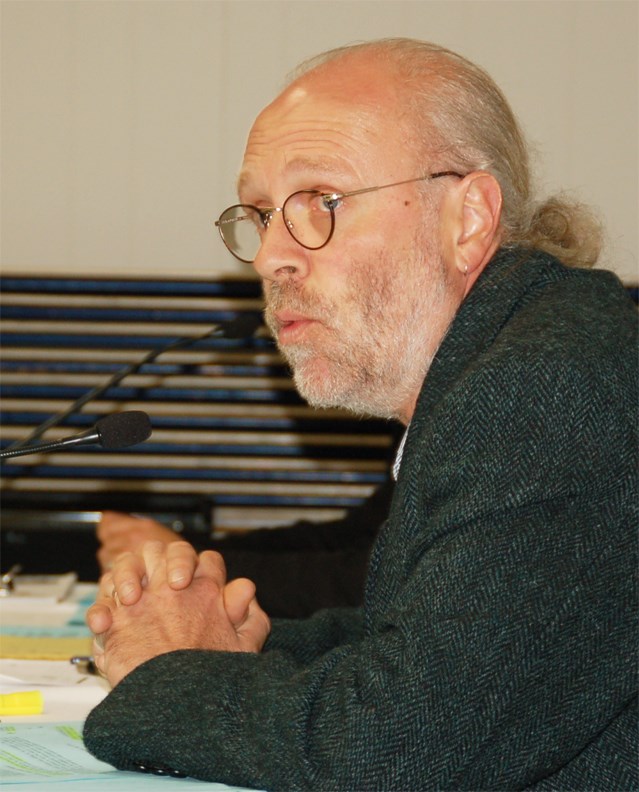Gibsons council voted Tuesday to revert to a non-chlorinated water system after the Town’s director of engineering cautioned that a repeat of last June’s E.coli contamination incident would result in an order to chlorinate on a permanent basis.
“If we ever ended up with another incident, we go back to full chlorination,” Dave Newman told council’s committee of the whole at the Gibsons Legion on Sept. 30.
“The drinking water officer and medical health officer have indicated to us this is our one shot at going back to an unchlorinated system.”
Addressing about 250 people who packed the Legion for the meeting, medical health officer Dr. Paul Martiquet said he had made it clear last summer that he would not allow the Town to revert to unchlorinated water until the source of contamination was found.
“I have since had some sober second thought, and because of the exemplary nature of the aquifer and the water, I’m willing to allow another shot at this without the chlorination,” Martiquet said.
He added that reverting to a non-chlorinated system was not the option he would recommend to council.
Speaking in favour of non-chlorination, Coun. Gerry Tretick noted the Town had put safety measures in place — including emergency chlorination systems at all wells — and would be doing extra bacteriological testing.
“If for some reason that doesn’t work, we will spot it quickly, presumably, and we have the means of dealing with it quickly, as well,” Tretick said. “I think the public has come to appreciate the non-chlorinated water and would like to see it back again.”
Since July 10, the Town has been chlorinating the municipal water supply, which serves about 75 per cent of Gibsons properties.
In his report, Newman said the earliest he could see the Town reverting to non-chlorinated water would be the middle of next spring.
While no definitive source of contamination was found, analysis of water samples “seemed to support the theory of bird or rodent droppings contaminating water in the [Parkland] reservoir,” he said.
The cost to date for investigative and capital works related to the incident is $250,000. An estimated $80,000 is required for additional work under either the chlorination or non-chlorination option.
Rather than the Town borrow the money, director of finance Ian Poole said the preferred method to recover the loss would be “some sort of rates increase, as much as I hate to say that. But we have to be realistic.”



